Office 365 Business Plans Compared with Comparison Chart
Office 365 Business is best suited for small and mid-size business. There are three business plans within Office 365, Business Essentials, Business and Business Premium . But which plan do you need, what are the important differences and how do you decide which one you should buy? In this article, I will compare the different plans, highlight the most important differences between them. At the end of the article, you will find a comparison chart between the plans.
If you want to compare all the Office 365 versions (Business and Enterprise), make sure you check this article with all the versions and details.

Comparing the Business Plans
Desktop versus browser only.
There a few big decision makers between the Office 365 Business plans and one of them is if you need the desktop Office applications (Outlook, Word, Excel, Powerpoint, Onenote and Access) or if you are fine with the browser version only. Business Essentials comes with only the Online versions of Office, so if you need the desktop versions (or mobile apps) of Office, you have to choose between Business and Business Premium.
Email hosting and Cloud storage
The second big decision maker is if you want to use Exchange and/or SharePoint. Office 365 Business does not have Exchange for hosting your mailbox or SharePoint. You can host your email at your current web host and still use Outlook, but this way you miss the ability to easily share mailboxes or calendars. So if you want desktop applications and hosted mail and/or SharePoint, then your only choice is to go for Business Premium .
Using Exchange for your Business will make managing your mail a lot easier. No more looking up those Pop3 or Smtp details to get your mail in Outlook or on your mobile phone, just fill in your email address and password and you are done. But besides the ease of configuration, also the ability to create shared mailboxes (like [email protected] or [email protected]) really helps you to bring your business to the next level.
Those shared mailboxes (and calendars) won’t cost an additional license. All users with an Office 365 license can access the mailbox if they are granted access to it. With Exchange, you get a 50 GB mailbox per user, which is a lot more than your typical hosting provider.
All the Office 365 Business Plans come with a OneDrive for Busines account for each user. And yes, you can share folders from your OneDrive with your coworkers, but that’s not really the way to go here. With Onedrive, you’re the owner of the file and in control who can access them etc. If you add a new file or folder, it’s private until you share it. While with SharePoint the whole group or team members are the owners, allowing them to create, edit and share files with (external) users and manage version history.
But SharePoint is more than a file storage, you can create lists, web pages, calendars and add metadata to documents. Another great advantage of SharePoint is that you can access your documents from anywhere in the world. Just use the SharePoint app on your mobile phone or any internet browser to log in and access your documents.
Terminal Server / Citrix environment
Business plans do not support shared computer activation. Something you need when you use a terminal server or Citrix environment. If you have a terminal server environment you will have to go for the Enterprise plan.
Office Add-ins (CRM/ERP add-ins)
This is one of the differences that are easily overlooked, but very important for larger corporations. With Office 365 Business and Business Essentials you can’t use Office Add-ins, ActiveX or Browser helper objects. Now you might think, I don’t really need add-ins. But no add-ins also means no connection with your CRM or ERP application. So no looking up that customer record when you receive an email. Or linking an email to a project or customer.
Start with a trial
If you want to test Office 365 for Business you can start with a 30-day trial. You don’t need a domain name for it, you can use a free *.onmicrosoft.com domain name that can be used during the trial. Later on, you can always add your domain name to your trial account if you are ready to move over.
Comparison Chart Office 365 Business Plans
* MyAnalytics will be available for every business and enterprise plan with hosted exchange. Rolling out in January 2019
You may also like the following articles
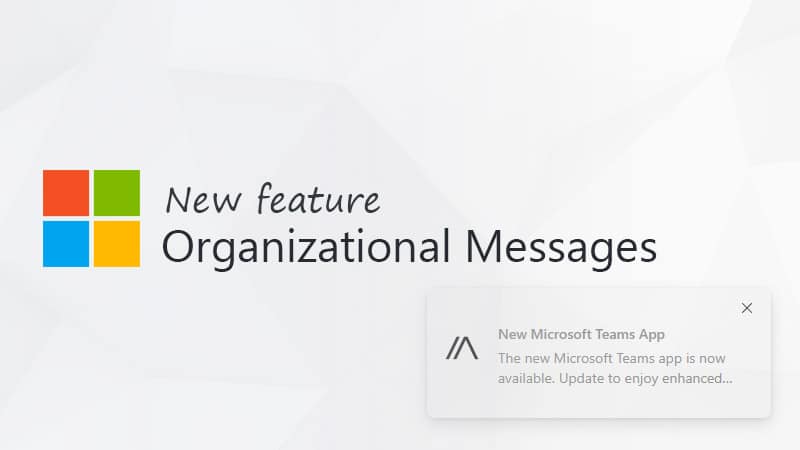
Organizational Messages in Microsoft 365

How to Disable a Mailbox in Exchange Online

How to Delay Sending Email in Outlook
Leave a comment cancel reply.
Notify me of followup comments via e-mail. You can also subscribe without commenting.

So, about that AdBlocker... Will you consider disabling it?
Yes, ads can be annoying. But they allow me to keep writing content like this. You can also support me by Buying Me a Coffee ☕ or visit the shop to get some Tech-Inspired merchandise | Read more about disabling AdBlockers

Can we help you?

Supercharge your AI experience with Copilot Pro. Learn more
Maximize the everyday
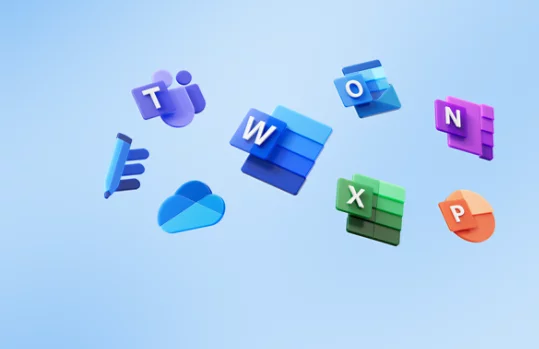
- For business
Save 16% when you pay yearly for Microsoft 365
- Paid yearly
- Paid monthly
Microsoft 365 Family

- For one to six people
- Sign in to five devices at once
- Use on PCs, Macs, phones, and tablets
- Up to 6 TB of secure cloud storage
- Apps with premium features and offline access
- Identity, 1 data, and device security
- Ad-free secure email
Microsoft 365 Personal

- For one person
- 1 TB of cloud storage
Subscription automatically renews. Cancel anytime to stop future charges. 2 Already have a subscription?
Explore even more benefits of Microsoft 365

Simplify your online security
Keep you and your family safer online with continuous monitoring for threats, real-time alerts, tips, and expert guidance from Microsoft Defender.
Powerful productivity apps
Use Word, Excel, and PowerPoint to collaborate in real time or work offline.
Trusted storage for priceless memories
Quickly save, share, and edit your photos and files with OneDrive and Microsoft 365.
Make the most of your day
With Outlook as command central, you can spend less time organizing your life and more time enjoying it.

All your ideas in one place
Capture inspiration in text, audio, photos, and videos to create your next big idea with OneNote.

Tell your story, your way
Easily turn captured memories into beautiful videos with Clipchamp and Microsoft 365.
Compare Microsoft 365 with Office
Office home & student 2021, save with an annual subscription.
Switch to an annual subscription and enjoy the full power of Microsoft 365 for less than paying monthly.
Office Home & Business 2021
- One-time purchase for 1 PC or Mac
- Classic 2021 versions of Word, Excel, PowerPoint, and Outlook
- Access to support experts

Frequently asked questions
What’s the difference between office 2021 (one-time purchase) and microsoft 365 (subscription).
Office 2021 is sold as a one-time purchase, which means you pay a single, up-front cost to get Office apps for one computer. One-time purchases are available for both PCs and Macs. However, there are no upgrade options, which means if you plan to upgrade to the next major release, you'll have to buy it at full price.
Microsoft 365 is a subscription that includes the most collaborative, up-to-date features in one seamless, integrated experience. Microsoft 365 includes the robust Office desktop apps that you’re familiar with, like Word, PowerPoint, and Excel. You also get extra online storage and cloud-connected features that let you collaborate on files in real time. With a subscription, you'll always have the latest features, fixes, and security updates along with ongoing tech support at no extra cost. You can choose to pay for your subscription on a monthly or yearly basis, and the Microsoft 365 Family plan lets you share your subscription with your family for up to 6 people, and use your apps on multiple PCs, Macs, tablets, and phones.
How do I know if my PC or Mac can run Microsoft 365?
Will microsoft 365 be identical on a pc and on a mac, do i keep control of my documents with a microsoft 365 subscription, is internet access required for microsoft 365.
Internet access is required to install and activate all the latest releases of apps and services included in all Microsoft 365 subscription plans. Note that if you are an existing subscriber, you do not need to reinstall or purchase another subscription.
For Microsoft 365 plans, Internet access is also needed to manage your subscription account, for example to install Office apps on other PCs or to change billing options. Internet access is also required to access documents stored on OneDrive, unless you install the OneDrive desktop app .
You should also connect to the Internet regularly to keep your version of Microsoft 365 up to date and to benefit from automatic upgrades. If you do not connect to the Internet at least every 31 days, your apps will go into reduced functionality mode, which means that you can view or print your documents but cannot edit the documents or create new ones. To reactivate your apps, simply reconnect to the Internet.
You do not need to be connected to the Internet to use the Office apps, such as Word, Excel, and PowerPoint, because the apps are fully installed on your computer.
What is a Microsoft account and why do I need it for Microsoft 365?
Your Microsoft account is the combination of an email address and password that you use to sign in to services like OneDrive, Xbox LIVE, and Outlook.com. If you use any of these services, you already have a Microsoft account that you can use or you can create a new account. Learn more about a Microsoft account .
As part of signing up for a trial or purchasing Microsoft 365, you will be prompted to sign in with a Microsoft account. You must be signed in with this account to install and manage your Microsoft 365 subscription, or to use some subscription benefits, including cloud storage.
How many people can use a Microsoft 365 subscription?
How do i share my subscription benefits with members of my family, if i’m not paying for a subscription, what do i get for free, what is microsoft defender, what is the difference between microsoft defender and windows security.
Microsoft Defender is a new cross-device app that helps people and families stay safer online. Microsoft Defender adds new features and a simplified, user interface. Microsoft Defender also brings valuable device protection to iOS, Android, Windows, and Mac, with malware protection, web protection, real-time security notifications, and security tips. 1,2 Microsoft Defender is available in the Apple, Google, and Microsoft app stores and requires a Microsoft 365 Personal or Family subscription to use.
Windows Security, formerly known as Windows Defender Security Center, is built-in security on Windows PCs to protect your device and data. Windows Security is pre-installed and automatically enabled. Windows Security includes Microsoft Defender Antivirus software that protects your Windows device and data against viruses, ransomware, trojans, and other malware unless non-Microsoft Antivirus software is active.
What is Clipchamp?
- App availability varies by device/language. Features vary by platform.
- Features and app availability may vary by region.
- [1] Identity theft monitoring is only available in the United States and US territories.
- [2] You can cancel online by visiting the Microsoft Account site . Sign in with the Microsoft account that you used to buy your subscription, and then turn off recurring billing. Then, your subscription will automatically expire when your remaining subscription time is up. For details, see “ How to cancel your Microsoft subscription ” at the Microsoft Support site .
Microsoft 365 Family vs Microsoft 365 Business: which is better for work?
Not sure whether to spend extra on corporate software? We weigh up Microsoft’s productivity possibilities

Most of us have been using apps like Word and Excel for decades, so it’s no surprise that productivity suites like Microsoft 365 are popular – they combine top tools and security features into easy, accessible packages.
If you’re not familiar with the range of Microsoft 365 options on the market, though, the range of options can be extremely confusing. It’s even trickier if you’re weighing up Microsoft’s various family and business plans.
And while it might seem odd to compare home and work products, the rise in freelancing and hybrid working means more people and companies are trying to figure out if they can use Microsoft 365 home products instead of a pricier business package.
Whether you’re a freelancer, an IT manager or a business owner, it’s worth weighing up Microsoft 365 Family and Microsoft 365 Business to find the best option for you – and that’s exactly what we’ve done.
That’s not the end of our software support, either. We’ve delved into the best photo recovery apps and explored the best apps for managing your money .
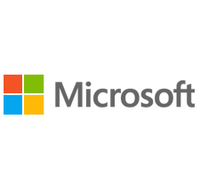
Microsoft for Business can help identify your company's specific tech needs. Connect one-on-one with a business product expert by video chat or audio call. Book a consultation today.
Microsoft 365 Family: what do you get?
There’s no denying that Microsoft 365 Family offers great value. Pay $99.99 per year in the US or £79.99 in the UK and you get Word , Excel , PowerPoint , OneNote , Outlook and OneDrive . Users can run those apps on PCs, Macs, Android and iOS devices and on the web. Access and Publisher are available for PC users, too.
It’s huge versatility, and the impressive set of features doesn’t stop there. Each user gets 1TB of cloud storage so you can sync files across devices. Each user gets 50GB of space with their Outlook email address, and Family users can enjoy Microsoft Teams and Skype for easy communication.
Are you a pro? Subscribe to our newsletter
Sign up to the TechRadar Pro newsletter to get all the top news, opinion, features and guidance your business needs to succeed!
Elsewhere, conventional data protection comes from Microsoft Defender, and OneDrive incorporates ransomware detection and recovery services. There’s even a basic free video editing software and royalty-free templates, stock photos and stock videos.
If you need reliable, synchronized access to productivity tools, then the Home product makes loads of sense – especially if you want productivity software that your family can use. And with support for six users, the Family package is ideal for small businesses with relatively basic productivity needs.
There’s a great option if you’re self-employed, too: the Microsoft 365 Personal product only supports one user, but it only costs $69.99 or £59.99 per year.
Microsoft 365 Business: a better option?
There’s no doubt that Microsoft 365 Family is well-suited to anyone who needs relatively straightforward productivity and email tools, but if you run a business or handle corporate IT systems then you’ll find its limits very quickly.
If that’s the case, then you should consider Microsoft 365 Business instead. These products are more expensive, but they’re far more powerful.
Let’s start with Microsoft 365 Business Basic, which costs $6 or £4.50 per user per month. You get web versions of Word, Excel, PowerPoint, OneNote and Outlook. You get Exchange, too, so you can use your domain name rather than Outlook. Each user gets 1TB of OneDrive cloud storage space alongside 50GB of email capacity.
The Basic product has more collaboration options, in-depth calendaring capabilities and a solid range of admin settings, and its tools also work on Android and iOS – just like in Microsoft 365 Family.
If you’d like to switch your business to downloadable apps rather than online versions, you can pay $8.25 or £7.90 for Microsoft 365 Apps for Business.
Upgrade to Microsoft 365 Business Standard and you get everything in Business Basic alongside downloadable apps and the ability to host webinars . You’ll also get more detailed options about how Microsoft controls and processes your data, which is perfect if you want to retain your existing domain.
Microsoft’s top option, 365 Business Premium, costs $22 or £16.60 per user per month. That’s pricey, but you get class-leading security and management features that you simply won’t find on any other Microsoft 365 product. It’s the best product here if you have a wider network that you need to manage and sensitive data that you have to protect.
The various Microsoft 365 Business products offer more than the Family and Personal tools. Even at the Basic level you get Exchange, and as you upgrade through the tiers then Microsoft adds enterprise-grade management and security abilities.
And, no matter which Microsoft 365 Business tool you purchase, you’ll be able to add 300 users to your system and allow each user to use Microsoft’s products across five different devices.
We can’t deny the increase in cost, though. When all the Business products charge per user and per month, those products will quickly become pricier than Microsoft 365 Family or Personal.
Which should you use?
The relatively high costs means that there are plenty of situations where Microsoft 365 Family will be your best option – even if you’re buying software for business use.
If you’re a small company that only has relatively basic productivity needs, for instance, then you can easily buy Microsoft 365 Family, grant access to five other employees, and enjoy web, mobile and PC-based access to crucial apps.
It’s also ideal for freelancers, people who need a product for their family, and many people who work from home.
Pretty soon, though, you’re going to hit the limits of Microsoft 365 Family, especially if you’re part of a growing business or if you operate in a larger team. If that’s the case, then you or your business should stump up for a Microsoft 365 Business product.
Exchange compatibility means you can use corporate email addresses, those tools support a broader number of users, and as you progress through the tiers you get better security and management options. In terms of protection, deployment and administration, there’s really no competition.
Ultimately, freelancers, sole traders and people who need basic productivity tools can certainly save money with Microsoft 365 Family, and that’s a great option if you want one package to cover home and work use. But if you have a larger business then you’ll almost certainly need the more robust security and management tools available from Microsoft’s proper corporate software.
L ooking for a new laptop to WFH? Check out our best laptop for working from home
Mike has worked as a technology journalist for more than a decade and has written for most of the UK’s big technology titles alongside numerous global outlets. He loves PCs, laptops and any new hardware, and covers everything from the latest business trends to high-end gaming gear.
Samsung Smart Switch review: the ultimate tool for seamless device transition
Sistrix SEO tool review
How to unblock Netflix with a Smart TV
Most Popular
- 2 I've been walking 10,000 steps a day for a year – here are five unexpected benefits I've experienced
- 3 Spotify announces price hike, right after CEO enrages music fans by claiming the cost of creating 'content' is 'close to zero'
- 4 “Everybody walks wrong” – This walking expert gives four tips to help improve your posture and age-proof your body
- 5 Meta can't stop leaking its next VR headset, as it accidentally shows off the Quest 3S
- 2 Apple users are being targeted by MFA bombings - here’s how to stay safe with Avast One
- 3 eSIM connections are going to shake up the mobile market in a huge way
- 4 There's a secret radio inside Apple's new Macs and iPads – here's what it does
- 5 Microsoft forgot to remove Windows 10’s File Explorer from Windows 11 - here’s how to find it
Microsoft 365 License Comparison: Business Plans Vs. E5, E3, and E1
Price comparison for microsoft office 365 business plans and enterprise licenses, how microsoft 365 enterprise, microsoft 365 business, and office 365 enterprise plans differ, viva insights, microsoft 365 enterprise licenses, microsoft 365 e5, microsoft 365 e3, microsoft 365 f3, microsoft 365 f1, microsoft 365 business licenses, microsoft 365 business premium, microsoft 365 business standard, microsoft 365 business basic, microsoft 365 apps licenses, microsoft 365 apps for enterprise, microsoft 365 apps for business, office 365 enterprise licenses, office 365 enterprise e5, office 365 enterprise e3, the microsoft 365 business premium plan is most comparable to the enterprise e3 plan in terms of base features., office 365 enterprise e1, here’s how office 365 enterprise e1 differs from business premium:, office 365 enterprise f3, have questions about which microsoft 365 license is right for your organization request a quote to see how much you can save..
Choosing the correct Microsoft 365 licensing is an important step for every business, especially organizations in the cloud. Microsoft offers tiered solutions for small, medium, and enterprise sized businesses. While this allows companies to right-size licensing to their specific needs, it can also create confusion about which license is the right one. This blog will highlight the differences between Office 365 and Microsoft 365 products so you can make an informed decision.
Learn more about:
- Microsoft Licensing Changes in 2022 - The New Commerce Experience
- Microsoft Government Licensing
- Office 365 Educational Licensing
- Microsoft GCC and GCC High Licensing
- Microsoft Front Line Worker (F1 & F3) Licensing
When comparing Microsoft 365 licenses, price is one of the first questions decision-makers consider. Below are the prices* for Microsoft 365 Business, Microsoft 365 Enterprise, and Office 365 Enterprise licenses. As of April 1st, 2024, Microsoft Teams is no longer included in Microsoft 365 and Office 365 licensing but is available as a standalone purchase. When comparing Microsoft 365 licenses, price is one of the first questions decision-makers consider. Below are the annual* prices for Microsoft 365 Business, Microsoft 365 Enterprise, and Office 365 licenses:
- Prices assume a monthly payment with an annual agreement. Month-to-month licenses are available at a premium. Read more at Microsoft New Commerce Experience .
The base price per user for Microsoft 365 Business and Enterprise Plans ranges from $4.80 to $54.80, and that can quickly add up for larger organizations. That said, companies that utilize capabilities such as Rights Management or cloud PBX may save money by bundling these services into their licensing. Cost savings can be immense for businesses that purchase third party tools for Anti-Virus, eDiscovery, MFA, SIEM.
Many people use Microsoft 365 and Office 365 interchangeably; however, these are markedly different products. Office 365 is Microsoft’s productivity suite and includes the core applications most think of when they think of Microsoft: Outlook, Word, Excel, PowerPoint, and more. It is also only one of three suites included in a Microsoft 365 license.
Microsoft 365 licenses are available as Enterprise or Business licenses. Microsoft 365 Enterprise licenses bundle three suites—Office 365, Enterprise Mobility and Security, and Windows Enterprise—at different levels (E5, E3, F3, F1). Some Microsoft 365 Business licenses include all three suites but are generally more limited in features. Additionally, Microsoft 365 Business licenses have a per license cap of 300 users per tenant.
Note on GoDaddy’s Microsoft 365: We strongly discourage purchasing Microsoft 365 or Office 365 from GoDaddy due to hidden costs, and lack of feature availability. To learn more, read our blog on Migrating from GoDaddy Office 365 to Microsoft Office 365 .
Here are some major features you gain with Office 365 Enterprise plans:
- Advanced Information Protection
- Advanced Threat Protection
- Active Directory integration
- Litigation Hold
- Unlimited archive and mail storage
Microsoft 365 Enterprise is a suite that includes Office 365, Enterprise Mobility and Security, and Windows Enterprise. Microsoft 365 Enterprise gives you the enterprise security and compliance features you need, while providing cost savings through vendor consolidation, reduced management, and training overhead.
Due to its cost, the Microsoft 365 E5 license is often positioned as a luxury license for companies that want advanced security and compliance capabilities, along with automated features. The reality is that most IT teams are overworked and understaffed, at a time when cyberattacks are increasing exponentially.
Even if employees aren’t working from home, internet connectivity makes every company a potential global target and enables intellectual property to flow freely out of any unsecured environment. IT personnel are tasked with supporting business critical operations and protecting the organization from external and internal threat actors, a responsibility that’s only getting more challenging with shrinking budgets and workforce reductions.
At a minimum, we recommend having Microsoft 365 E5 licenses in place for anyone with far-reaching environment access, but strongly encourage companies to consider the business impact a breach will impose when, not if, one occurs.
Microsoft 365 E3 brings together best-in-productivity and collaboration with Office 365 Enterprise E3, Enterprise Mobility and Security E3 and Windows 11 E3.
Microsoft’s Frontline licensing is an alternative for users that need to have a digital presence in the tenant but are not but are not spending their days creating or consuming data within the environment. Frontline users may not work at a desk, but still require matching security and compliance capabilities. As such, the Microsoft 365 F3 license includes the full Enterprise Mobility and Security E3 suite but has very deprecated productivity applications and reduced storage allocations.
For organizations with regulatory requirements, the Microsoft 365 F5 Security and Compliance Add-On raises the security and compliance features in line with a Microsoft 365 E5 license while maintaining reduced productivity capabilities and storage allotments.
Microsoft 365 Business plans were created for small businesses that might not need all the features Enterprise Microsoft 365 and Office 365 offer. Microsoft 365 Business has a per license cap of 300 users per tenant.
The most powerful Microsoft Business Suite without going for full enterprise plans, Microsoft 365 Business premium takes all of the features of Microsoft 365 Business Standard and rolls in industry leading advanced security features, including Advance Threat Protection against zero-days, ransomware, malware, the ability to selectively wipe company data from mobile devices with Intune, Restrict copying and saving of company information on mobile devices, apply document restrictions and provide unlimited archiving.
Formerly Office 365 Business Premium, Microsoft 365 Business Standard adds critical small business tools such as Microsoft Bookings to allows customers to schedule appointments, and Mile IQ for real-time mileage tracking from your mobile devices.
Looking to get basic Microsoft 365 functionality? Microsoft 365 Business Basic offers business email with 50 GB mailbox storage, custom email domain, and web versions of essential Office 365 applications like Outlook, Word, Excel, and PowerPoint.
Here’s what you need to know about the Business Essentials license:
(Previously Office 365 ProPlus): Microsoft 365 Apps for Enterprise offers option for users who don’t need email but want Office 365 applications.
Microsoft 365 Apps for business (formerly Office 365 business) provides up to 300 users with automatically updated editions of the most used Office desktop applications.
Office 365 Business plans are great for companies just starting out or that only require limited functionality. For organizations looking for a more robust solution, Office 365 Enterprise plans are available. With Enterprise plans, you can choose from Office 365 and Microsoft 365 plans. Office 365 only includes Office, while Microsoft 365 is a full suite that includes Office 365, Enterprise Mobility and Security, and Windows 11 Enterprise. These licenses are broken up into E1, E3, and E5 enterprise plans, and F1 and F3 first line worker plans. (Learn all about Microsoft Front Line Worker Licensing)
Building off the E1 and E3 business plans, Office 365 E5 is the highest tier Microsoft offers. With this license, you gain Audio Conferencing, Phone System, Power BI pro, Customer Lockbox, and Microsoft Cloud App Security:
The E3 license is one of the more popular options for digital-driven businesses. With E3, you gain desktop apps, You gain email, archiving, information protection and more storage options. Additionally, you gain Intune for device management and Azure Information Protection (plan 1) for data loss protection.
Here’s what’s included in E3:
- Exchange Online Archiving (EOA) and Legal Hold
- Unified eDiscovery Center
- Rights management, data loss prevention and encryption
- Ability to add on PSTN
E1 is the least expensive Enterprise plan. Here’s what you get with the E1 license:
- With E1, you can only access email via the online application.
- With E1, you lose desktop versions of Office applications. You must use the online versions of Outlook and other Office applications like Word or PowerPoint online.
Ideal for line workers, drivers, retail staff, Office 365 F3 is focused on workers who do not spend much time in front of a computer. Including popular office apps for web and mobile devices, including Word, Excel, Outlook and PowerPoint.
If any license doesn’t suit your needs, you can also add on specific features via add-on licensing. But often, the cost of upgrading is cheaper than ballooning a license with monthly add-on charges. (Read more about add-ons here .) You can also mix and match licenses depending on user needs to better control costs.
Agile IT’s cloud licensing services make it easy to purchase, transfer, and manage your licenses. As your cloud solutions provider, Agile IT handles all billing and subscriptions for your Office 365 products. You continue paying Microsoft the monthly license fee, and we take care of the rest.
Published on: May 22, 2024 .
How can we help?
Let's start a conversation
Don’t want to wait for us to get back to you?
Explore top-rated data protection at an affordable price
- Customer stories
Learn how organizations of all sizes and industries successfully protect data with NAKIVO
- Product Datasheet
- Backup Solution for MSPs
- Backup for Virtualization
- Microsoft 365 Backup
- Ransomware Protection
- Real-Time Replication BETA

Enterprise Backup and Recovery Solution
- Virtual: VMware | Hyper-V | Nutanix AHV | Proxmox
- Physical server: Windows | Linux
- Workstations: Windows | Linux
- SaaS: Microsoft 365
- Cloud: Amazon EC2
- File Share: NAS | File Server
- Apps: SQL | Active Directory | Exchange | Oracle DB
- Virtual: VMware | Hyper-V
- MSP SOLUTION
- DISASTER RECOVERY
- VMware Disaster Recovery
- REAL-TIME REPLICATION beta
- IT MONITORING
- Backup Malware Scan
- SMB | Enterprise | Education Remote Office Backup Hybrid Cloud Backup
- Raspberry Pi
- Western Digital
- Backblaze B2
- S3-Compatible Storage
- EMC Data Domain
- HPE StoreOnce
- NEC HYDRAstor
- Backup from HPE Storage Snapshots
- Pricing and Editions
- Pricing Calculator
- Get a Quote
- Find a Reseller
- Find an MSP
- Renew License
More growth opportunities with the NAKIVO Partner Program
- Why Partner
- Solution Partner Signup
- Deal Registration
Grow your customer base with powerful BaaS and DRaaS
- MSP Partner Signup
- Technology Partners
- Storage Certification Program
- Log In to the Partner Portal
- SUPPORT RESOURCES
Find answers to your questions in our technical documentation
- Knowledge Base
- Release Notes
- API Reference Guide
- SUPPORT CENTER
Reach out to our highly-rated support team about any issues
- Send Support Bundle
- How-to Videos
Compare Microsoft Office 365 Business Plans: Apps, Features and Pricing
Microsoft 365 for Business (previously known as Office 365 for Business) is a cloud productivity subscription-based service geared towards small to medium-sized businesses. With a Microsoft 365 for Business subscription, your organization gets access to the most up-to-date Office applications as well as Microsoft’s flagship collaborative online services.

Backup for Microsoft 365 Data
Use the NAKIVO solution to back up Microsoft 365 data in Exchange Online, Teams, OneDrive and SharePoint Online for uninterrupted workflows and zero downtime.
Microsoft Office 365 Plans for Business Overview
Microsoft Office 365 for Business is a complete solution that brings together the best-in-class productivity of Office 365, advanced security, and device management tools. Within your organization, you and your co-workers can be more productive and work better together with Office apps, email, cloud storage, and a hub for teamwork. Microsoft Office 365 plans for business come with building tools that let you manage access to your data, keep sensitive data safe, and keep your business compliant and protected against most (but not all) security threats.
Microsoft currently offers four business plans to choose from, depending on an organization’s needs. The Microsoft 365 plans for businesses are:
Microsoft 365 Business Basic
Microsoft 365 apps for business, microsoft 365 business standard, microsoft 365 business premium.
Note that all Microsoft 365 plans for business have a limit of 300 users per license. If your organization requires more users, you may want to consider subscribing to a Microsoft Office 365 enterprise plan.
Now, let’s take a closer look at each of the Microsoft 365 plans for businesses and see what they have to offer in terms of features and pricing.
For a subscription fee of $5.00 per user/month, Microsoft 365 Business Basic (formerly known as Office 365 Business Essentials) offers web and mobile versions only of Office apps. These apps include Word, Excel, Outlook, PowerPoint, and OneNote. This entry-level plan also gives your organization access to collaborative services like Exchange Online with 50 GB of mailbox storage, SharePoint Online, Yammer, Skype for Business Online, and Microsoft Teams. Also included with this subscription is 1 TB of OneDrive cloud storage per user.
This Microsoft Office 365 plan is ideal for small and medium-sized businesses that want to unlock the benefits of cloud integration and remote work using the Office for the web suite and online communication services.
For a subscription fee of $8.25 per user/month, Microsoft 365 Apps for Business (formerly known as Office 365 Business) gives your organization access to the most up-to-date desktop versions of Office applications. These include Word, Excel, PowerPoint, Outlook, OneDrive, Access, and Publisher. The Office suite in this plan can be installed on up to 5 devices per user. None of the collaborative tools and services are available in this plan but the 1 TB of OneDrive cloud storage per user feature and the Office for the web suite are still present.
Microsoft 365 Apps for Business provides both cloud-based and on-premises Office suites to deliver the right set of capabilities to your organization. This plan is ideal for organizations whose computing workload heavily revolves around Office applications.
Priced at $12.50 per user/month, the Microsoft 365 Business Standard plan (formerly known as Office 365 Business Premium) combines in one package the features available in both Business Basic and Apps for Business plans. In addition to the cloud-based and on-premises Office suites, Microsoft 365 Business Standard includes a complete set of collaborative tools thus making this Microsoft Office 365 plan ideal for organizations looking to expand their remote work capabilities.
Priced at $20.00 per user/month, Microsoft 365 Business Premium (formerly known as Microsoft 365 Business) includes all the features available in the lower Business tiers in addition to an advanced security infrastructure and device management tools. The Business Premium plan is ideal for organizations that require a comprehensive remote work solution with cyber threat protection and a powerful mobile management system.
Microsoft Office 365 Comparison of Plans
Here is a comparison of pricing and available apps and collaboration services between all four Microsoft 365 plans for business:
Microsoft 365 suite apps comparison
Along with the traditional Office applications and online collaborative services, Microsoft 365 plans for businesses include applications used for knowledge, insights, content, project and task management, automation, and app building.
Business plans security and management options
As stated before, when it comes to advanced security options and management tools, Microsoft 365 Business Premium is the most feature-packed plan. The other Microsoft 365 plans do include basic security tools, but they pale in comparison to the Business plan’s features, as shown below:
Despite the advanced security features available in Microsoft 365 Business Premium, third-party Office 365 backup solutions is necessary to ensure that your SaaS data is safe and recoverable.
Your Microsoft 365 data can be compromised by human error or malicious cyber threats like ransomware. Files can be deleted or encrypted even when stored in the cloud. To keep your data safe, NAKIVO Backup & Replication offers full backup and recovery functionality for Exchange Online, OneDrives for Business, and SharePoint Online.

1 Year of Free Data Protection: NAKIVO Backup & Replication
Deploy in 2 minutes and protect virtual, cloud, physical and SaaS data. Backup, replication, instant recovery options.
People also read
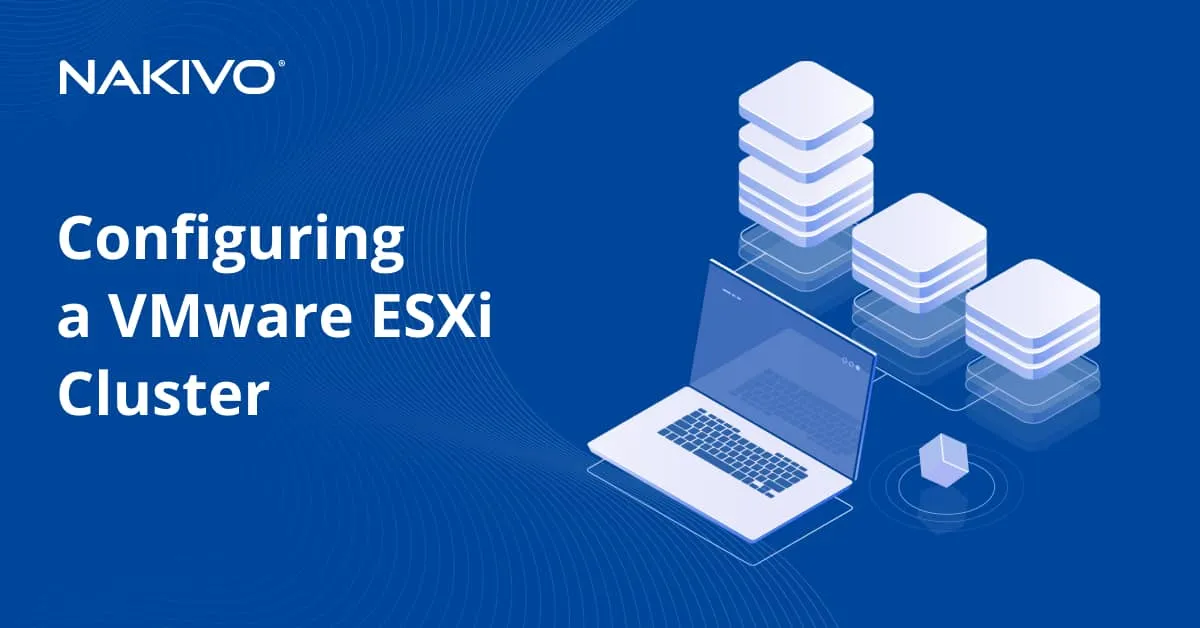
- Manage your subscription
- Manage payment method
- Renew your subscription
- Turn recurring billing on or off
- When subscription expires
- Cancel Microsoft 365
- Microsoft 365 subscription refunds
- Share Microsoft 365 Family
- Stop sharing Microsoft 365 Family
- You received an invitation to share
- Switch between Microsoft 365 subscriptions
- Switch to a business subscription
- Transfer to a different Microsoft account
- About accounts
- Sign in to Microsoft 365
- Why you need to sign in
- Forgot account or password
- Get started at Microsoft 365.com
- Meet the Microsoft 365 app launcher
- Check version
- Microsoft 365 for home or business
- What business product do I have?
- Difference between Microsoft 365 and Office 2021
- Difference between home and business plans
- Difference between Microsoft 365 and free web apps
- Troubleshoot

Switch to a Microsoft 365 for business subscription
Microsoft plans are designed to make things easier for you whether at home or in your business. This article will walk you through when and how to move from your Microsoft 365 Family or Microsoft 365 Personal subscription to a Microsoft 365 for business subscription. With a Microsoft 365 for business subscription:
Get a branded email address for your business or bring an existing one .
Create branded templates in Word, Excel, and PowerPoint .
Let customers schedule appointments with you online and share calendars across employees .
Use a central location for all work files to save time and collaborate quickly with clients and partners .
Protect your business with advanced security .
Before you begin
Before you start the switch, it’ll be helpful to understand some key differences between the home and family subscriptions and the business ones.
Watch: Understanding the key differences between home and business plans
Understanding the key differences between home and business plans
Switch to microsoft 365 for business, step 1: decide which subscription you want.
Deciding which subscription you want can depend on your specific business needs. The Microsoft 365 plan chooser is designed to help you with this. The chooser will make recommendations based on your answers to questions such as the size of your business, your field of work, the devices you use, and what kind of features, IT support, and security you're looking for. See Find the right plan for your business .
One the Results page, select the recommendation that fits your business needs and choose Buy now . For help with the sign up process, read the article below for the steps that correspond with your selected subscription.
Sign up for Microsoft 365 Business Standard
Sign up for Microsoft 365 Business Premium
Sign up for Microsoft 365 Business Basic
Step 2: Set up your Microsoft 365 for business subscription
After you’ve purchased your new Microsoft 365 for business subscription, the next step is to set up your Microsoft 365 for business subscription. Follow the article below for the steps that correspond to with your subscription.
Set up Microsoft 365 for Business Standard
Set up Microsoft 365 for Business Premium
Set up Microsoft 365 Business Basic
Step 3: Migrate Outlook information to new Microsoft 365 for business email account
Because emails are stored in different places in Microsoft 365 for home and Microsoft 365 for business subscriptions, you’ll probably want to migrate some, or all of your email to the Microsoft 365 for business subscription that you choose. Use the Microsoft Outlook desktop app that comes with Microsoft 365 to save email, calendar, tasks, and contacts to an Outlook Data File (PST) that you can move into your business email account. Follow the steps in Migrate Outlook content using a .pst file and Import email, contacts, and calendar from an Outlook .pst file . You don't have to migrate any content if you don't want to. You can start with the new Outlook email account if you wish.
If you don't have Outlook installed, follow the steps in the Download and install or reinstall Microsoft 365 or Office 2021 on a PC or Mac topic.
Tip: You can't use Outlook Web App to do these. Each user who wants to migrate their Outlook information must use the full downloadable Microsoft Outlook app.
Step 4: Migrate OneDrive files to OneDrive for Business
Because OneDrive files stored in different places in Microsoft 365 for home and Microsoft 365 for business subscriptions, you’ll probably want to migrate some, or all of your files stored in OneDrive to the Microsoft 365 for business subscription that you choose. All Microsoft 365 for business plans include OneDrive for business, which provides 1 terabyte of online file storage for each user. For the steps on how to migrate the files from OneDrive personal to OneDrive for business that’s included with the Microsoft 365 for business subscription, see Move files from OneDrive to OneDrive for work or school . You don't have to migrate any content if you don't want to. You can start with a new OneDrive if you wish.
Step 5 Migrate OneNote files
Follow the steps in this topic to migrate your OneNote files to Microsoft 365 for business: Export and import OneNote notebooks - Microsoft Support . You don't have to migrate any content if you don't want to. You can start with the new OneNote account if you wish.
Step 6: Do you need both a business plan and a personal plan?
In some cases, a single Microsoft 365 plan will suit all your needs, but there might be instances when having both plans is the correct decision for you.
For example, you may want to keep your personal files, photos, and other documents separate from your business and having two plans will allow you to do this.
Additionally, if you already have Microsoft 365 Family that you're sharing with friends and family who aren't part of your business, keeping that personal subscription might be the best thing for everyone. This means you don't have to move anyone off that plan, and you don't have to worry about any personal files you already have associated with that subscription and your personal account.
If you decide that you don't need both, you can cancel or turn off recurring billing for a Microsoft subscription .
If you have compliance or regulatory requirements for your business and you want to help with the switch, contact a partner or Microsoft support services to help you with the steps in this document.
Work with a Microsoft 365 business partner in your area: Find the right partner for you .
Microsoft Store business consultants are available to help you with this free of charge: Contact Microsoft Stores online . (Note: Help from Microsoft business consultants isn't available in all markets.)
Leave us a comment
Were these steps helpful? If so, please let us know at the bottom of this topic. If they weren't, and you're still having trouble, tell us what you were trying to do, and what problems you encountered.


Need more help?
Want more options.
Explore subscription benefits, browse training courses, learn how to secure your device, and more.

Microsoft 365 subscription benefits

Microsoft 365 training

Microsoft security

Accessibility center
Communities help you ask and answer questions, give feedback, and hear from experts with rich knowledge.

Ask the Microsoft Community

Microsoft Tech Community

Windows Insiders
Microsoft 365 Insiders
Find solutions to common problems or get help from a support agent.

Online support
Was this information helpful?
Thank you for your feedback.
- Generative AI
- Office Suites
- Collaboration Software
- Productivity Software
- Augmented Reality
- Emerging Technology
- Remote Work
- Artificial Intelligence
- Operating Systems
- IT Leadership
- IT Management
- IT Operations
- Cloud Computing
- Computers and Peripherals
- Data Center
- Enterprise Applications
- Vendors and Providers
- Enterprise Buyer’s Guides
- United States
- Netherlands
- United Kingdom
- New Zealand
- Newsletters
- Foundry Careers
- Terms of Service
- Privacy Policy
- Cookie Policy
- Copyright Notice
- Member Preferences
- About AdChoices
- E-commerce Affiliate Relationships
- Your California Privacy Rights
Our Network
- Network World

Buyer’s guide: How to choose Microsoft 365 vs. Office 2021
Microsoft office may be the most common productivity tool for corporate users, but it's not a one-size-fits-all suite. here are the differences between office 2021 and microsoft 365 and how to decide which is best for you..

Microsoft Office is how billions of people around the world go to work and school, whether they do it from home, an office, a classroom, or a combination of any of those. This suite of productivity tools is used by people working in 106 languages in nearly every country in the world, and it’s available in versions for personal, small business, enterprise, and educational use.
But there is more than one way to buy Office — or, rather, to buy the license to use it. There’s the “perpetual” version of Office that’s available as a one-time purchase; the most current version is Office 2021 . Then there’s the subscription version that lives in the cloud and for which you pay a monthly or annual fee. When this version was introduced in 2011, Microsoft called it Office 365 , later renaming it Microsoft 365 for personal and small business subscriptions. At the enterprise level, both Office 365 and Microsoft 365 plans are available. In this story, we’ll use “Microsoft 365” as shorthand for all “365” subscriptions unless we’re referring to a specific plan.
Why choose to buy it one way and not the other? The answer can be confusing, especially since each suite of tools includes most of the same applications, give or take.
Microsoft has made its preference clear: The company believes that “ the cloud will power the work of the future ” and would love it if everyone purchased Microsoft 365. There are lots of incentives for doing just that. But you have options.
Office 2021 vs. Microsoft 365: What to consider
• microsoft office: the options (plans and pricing), • how you pay for office, • how each version of office is serviced, • how office hooks up with cloud services.
Here’s help deciding which version of Office is right for you or your company.
Microsoft Office: The options
For personal use.
- Office Home & Student 2021: $150, one-time purchase for use on one computer; includes Word, Excel, PowerPoint, and OneNote.
- Microsoft 365 Personal: $70 a year or $7 a month (1 user, multiple devices); includes Word, Excel, PowerPoint, OneNote, Outlook, OneDrive , and Teams.
- Microsoft 365 Family: $100 a year or $10 a month (6 users, multiple devices); includes Word, Excel, PowerPoint, Outlook, OneDrive, Teams, and Family Safety.
For small businesses
- Office Home & Business 2021: $250, one-time purchase for use on one computer; includes Word, Excel, PowerPoint, and Outlook.
- Office Professional 2021: $440, one-time purchase for use on one computer; includes Word, Excel, PowerPoint, Outlook, Publisher, and Access; works with Teams.
- Microsoft 365 Apps for business: $8.25/user/month (up to 300 users); includes Word, Excel, PowerPoint, Outlook, OneDrive, Publisher, and Access.
- Microsoft 365 Business Basic, Standard, and Premium: plans range from $6/user/month to $22/user/month (up to 300 users); tools included depend on the level of your subscription. Desktop versions of Word, Excel, and other Office apps require a Standard plan or higher; the Basic plan offers only web and mobile versions. All plans include Exchange email hosting, OneDrive, and SharePoint. The Premium plan adds advanced security and management features.
For enterprises
- Office LTSC 2021: available only through volume licensing ; this Office title stands for Long Term Servicing Channel — it’s the commercial version of Office 2021 . According to Microsoft, it’s designed for regulated devices that can’t accept updates for security reasons and for systems that don’t connect to the internet. (Note, however, that it’s the only non-subscription version of Office available for large organizations.) Includes Word, Excel, PowerPoint, Outlook, OneNote, Access, and Publisher.
- Microsoft 365 Apps for enterprise: $12/user/month (up to 5 devices per user); annual commitment required; includes Word, Excel, PowerPoint, Outlook, Teams, OneDrive, OneNote, Access, and Publisher.
- Office 365 E1, E3, and E5: plans range from $10/user/month to $38/user/month; annual commitment required; tools included depend on the level of your subscription. Desktop versions of Word, Excel, and other Office apps require an E3 plan or higher; the E1 plan offers only web and mobile versions. All plans include Exchange Online, OneDrive, SharePoint Online, and additional enterprise services. The E5 plan adds advanced security, compliance, and management features.
- Microsoft 365 E3 and E5: plans range from $36/user/month to $57/user/month; annual commitment required; these plans offer most of the same features as the Office 365 E3 and E5 plans, and also include Windows and additional Microsoft services such as Visio.
- Other plans: Microsoft offers additional Office 365 and Microsoft 365 plans for education , government , and nonprofit organizations, and for frontline workers .
How you pay for Office
One big difference between the “2021” and “365” options is how you pay for them. If you are buying a “perpetual license” (such as with Office Home & Business 2021 or Office LTSC 2021 ), you pay a larger sum than with the subscription’s offerings under the Microsoft 365 or Office 365 brand, but you do so only once. When you subscribe to any of the Microsoft 365 or Office 365 plans, you pay annually or monthly.
Office 2021: a perpetual license
Whether you buy a single copy of Office 2021 in a retail outlet or download hundreds of seats via volume licensing, Microsoft calls this is a “one-time purchase” because you pay only once, not every month. (Labels like “perpetual,” which have been widely used by Computerworld , technically note the type of license rather than payment methodology, but in this case, the kind of license is tied to whether it was bought outright or simply “rented.”)
Microsoft defines the term as when “…you pay a single, up-front cost to get Office applications for one computer.” Up-front is the key adjective there. You have to ante up the entire purchase price before you get the software.
That purchase of a license to legally run the software gives you the right to use that version of Office 2021 in perpetuity. In other words, the license has no expiration date, and users may run the suite for as long as they want. Pay for Office 2021 this year and use it for the next seven years? Fine. Use it to operate your space portal in the year 2050? Nothing to stop you. (Except hardware compatibility. Though you could probably find an old, refurbished computer and drag that into space.)
But if you want new features that come out with the next update, you will have to pay full price again, whatever that is, when the next version comes out — if one comes out. There are no upgrade options on the perpetual license packages.
Microsoft 365: Office as a service
Microsoft 365, the purchase method Microsoft would prefer you choose, is a subscription service, where you pay the software giant monthly or annually. There is a discount, sometimes a tempting one, for going with the annual payment plan over the monthly one. (All enterprise plans, from Enterprise E1 to E5, require an annual commitment.) And the company is always sweetening this pot by offering more apps than you get with the perpetual license products and with a continuous supply of new features.
Like any subscription, Microsoft 365 provides a service — in this case, the right to run the suite’s applications and access the associated services — only as long as payments continue. Stop paying, and rights to run the apps expire. This happens in a progressive way , giving you time to download your data or update your payment plan, whichever you choose.
For 30 days after non-payment, your plan will be “Expired.” You will still have access to all your apps and files. If you don’t activate it again while it’s in the Expired stage, it moves to “Disabled,” where it will stay for 90 days. You won’t be able to access your apps or data until you pay up. If you still don’t pay for your plan, it will be “Deleted.” At that point, it’s gone.
A Microsoft 365 license, then, is contingent on sustained payments. Halt the latter, and the license is revoked. Restart the payments — but don’t wait too long — to restore the license.
How each version of Office is serviced
Although payments define one difference between Office 2021 and Microsoft 365, Microsoft’s development and release pace is ultimately more important to users — and the IT professionals who support them.
Think of Office 2021 as traditional software — a bundle of tools that typically don’t change much until the next major version. That holds for servicing, too. Microsoft does release monthly security and quality updates for the perpetual license versions of Office. (You can check from within any Office app if there are updates available . From, say, a Word document, go to File > Account and look for Product Information . Then choose Update Options and Update Now .)
But Office 2021 doesn’t get the continually upgraded features and functionality that Microsoft 365 does. What you get when you buy the suite, feature-wise, is it. If you want the updates, at some point in the future, you will have to buy whatever version Microsoft is selling as a perpetual license then.
(The company says of the release of Office LTSC 2021, “While this will not be our last perpetual release, we continue to make investments that make it even easier for customers to adopt Microsoft 365.” And in an online explainer about all Office products, the company says, “We are happy to confirm our commitment to another release of the perpetual version of Office in the future, beyond this release.”)
Microsoft regularly releases feature and security updates for Microsoft 365 apps, though. And it releases them as they happen. As new features and functionality accrete, and the applications in Microsoft 365 evolve, Microsoft will decide it’s time for a new version of Office. It will then package some of those features into an upgraded suite for customers who continue to make one-time, up-front purchases. How long they keep doing this likely depends on how long there is a demand for these “locked in time” versions.
One other important note: Office 2021 and Office LTSC 2021 will be supported with security updates only through Oct. 13, 2026. That’s just five years of support, down from seven years in Office 2019 and 10 years in prior releases. In contrast, with Microsoft 365 subscriptions, support never runs out — as long as you keep paying, of course.
How Office hooks up with cloud services
One reason to choose Office 2021 over Microsoft 365 is internet access. If you don’t have reliable access to the cloud, can’t be connected to the internet for security reasons, or — for whatever reason, maybe you live on a remote mountaintop — your computer is often offline, this is the type of software you need.
In fact, internet access is one of the main reasons Microsoft can’t force us all to subscribe to Microsoft 365. Microsoft 365 runs in apps that are downloaded to your computer, phone, or tablet, but those apps require near-constant internet access, especially if you use OneDrive and store all your files in the cloud.
In standard use, Microsoft 365 stops working if it can’t connect to the internet for 30 days. For some use cases, this is a deal breaker. But the company is making efforts to overcome this objection to the Microsoft 365 products. Last year, Microsoft launched features for enterprise users that allow Microsoft 365 keep working without issue even if it is offline for extended periods of time. An IT administrator has to set it up, but after that, a user can keep working, offline, for up to 180 days.
Office 2021, on the other hand, does not rely as heavily on an internet connection to operate, save files, and self-update. You can connect it when you have access and work offline when you don’t. This, as much as cost and a desire to stick to old-school software distribution models is, perhaps, the most compelling reason to insist on one of the perpetual license products.
Whichever license you ultimately choose, you will get many of the same tools. And the reasons for making one choice over another have less to do with price and features than with how you or your users work, support and security needs, reliability of internet access, online storage and collaboration needs, and how excited (or annoyed) you or your users are likely to be by new features that turn up, like a gift, in the software.
This article was originally published in July 2017 and most recently updated in June 2022.
Related content
Windows 11 insider previews: what’s in the latest build, duckduckgo launches anonymous ai chatbot, us chip export control rules circumvented by ai cloud services, says report, how many jobs are available in technology in the us, from our editors straight to your inbox.

Gregg Keizer covers Windows, Office, Apple/enterprise, web browsers, and web apps for Computerworld.
More from this author
How to go incognito in chrome, edge, firefox, and safari, what’s in the latest firefox update 93 improves smartblock, debuts sponsored search suggestions, microsoft lets windows 11 loose on the world, microsoft sets perpetual-license office 2021 prices, reveals new-feature list.
Christina Wood is a freelance writer living in North Carolina. She blogs at GeekGirlfriends.com .
Most popular authors

- Gyana Swain
Show me more
Wwdc and 'apple intelligence' — what to expect.

Microsoft OneDrive cheat sheet: Using OneDrive for Web

6 secret settings for a smarter Chrome Android setup

Podcast: Does age discrimination exist in the tech industry?

Podcast: Google's AI problems go beyond the 'glue on pizza' error

Podcast: Why computing now feels like ‘disposable technology’

Does age discrimination exist in the tech industry?

Google has more problems than its ‘glue on pizza’ error

Why computing now feels like ‘disposable technology’


Copilot for Microsoft 365 is now available for small and medium-sized businesses.
Find the best Microsoft 365 plan for your business
Customers can choose between plans with and without microsoft teams., microsoft 365 apps for business.
Originally starting from ₹ 685.00 now starting from ₹ 685.00
₹ 685.00 ₹ 685.00
(Annual subscription–auto renews) 1
See trial terms 2
Available for up to 300 employees
Desktop versions of Word, Excel, PowerPoint, and Outlook
1 TB of cloud storage per user
Anytime phone and web support
Microsoft 365 Business Standard
Originally starting from ₹ 770.00 now starting from ₹ 770.00
₹ 770.00 ₹ 770.00
Everything in Apps for business, plus:
Web and mobile versions of Word, Excel, PowerPoint, and Outlook
Custom business email ([email protected])
Chat, call, and video conference with Microsoft Teams 6
10+ additional apps for your business needs (Bookings, Planner, Forms, and others)
Webinars with attendee registration and reporting
New : Collaborative workspaces to co-create using Microsoft Loop
New : Video editing and design tools with Microsoft Clipchamp
Copilot for Microsoft 365 available as an add-on. 3
Microsoft 365 Business Premium
Originally starting from ₹ 1,830.00 now starting from ₹ 1,830.00
₹ 1,830.00 ₹ 1,830.00
Everything in Business Standard, plus:
Advanced identity and access management
Enhanced cyberthreat protection against viruses and phishing attacks
Enterprise-grade device and endpoint protection
Discover, classify, and protect sensitive information
Add Copilot to your Microsoft plan 3
Sign in to add Copilot to your existing Microsoft 365 business plan.
If you’re not an existing customer, buy a Microsoft 365 plan to get started.

Explore Microsoft 365

Help me choose the right Microsoft 365 plan
Learn more about microsoft 365 for business, learn more about microsoft 365 for enterprise, get just the microsoft 365 desktop apps, other suggested products.
Visio: Flowchart software. Different plans available
Project: Project management software. Different plans available

Need help with purchase or trial?
Give us a quick call.
000-800-440-2008
Sales support for commercial products
Available M-F 9:00 a.m. to 6:00 p.m.
Frequently asked questions
What is microsoft 365.
Microsoft 365 is the productivity cloud designed to help everyone achieve what matters, in their work and life, with best-in-class Microsoft 365 apps, intelligent cloud services, and advanced security.
On how many devices can I install Microsoft 365 apps if I have a Microsoft 365 business plan?
Install Microsoft 365 apps on up to five PCs or Macs, five tablets, and five mobile devices. Hybrid Windows devices, such as the Microsoft Surface Pro, count as either a PC or a tablet.
What forms of payment can I use?
All major credit cards are accepted. When paying with a credit card, your subscription amount will appear on your credit card statement. Existing customers may be eligible to pay by invoice and can contact support to check their eligibility for this payment method. Learn more about paying by invoice . For Microsoft 365 business plans, depending on your choice of service, you'll be billed monthly or annually.
What's the difference between monthly, annual, and annual commitment payments?
To provide you with the greatest amount of flexibility, different payment options are available.
Microsoft 365 Business Basic, Apps for business, Business Standard, and Business Premium plans are available for monthly commitment payment or annual commitment payment.
- Monthly commitment payment: Pay month by month and cancel at any time.
- Annual commitment payment: Sign up for a one-year subscription and benefit from a discount for using this payment option. By default, your billing plan will be set to monthly billing. After your purchase, you can change your billing plan to annual billing within the Admin Portal.
The Microsoft 365 Enterprise and Office 365 Enterprise plans (including standalone plans such as Exchange Online) and Microsoft 365 Apps for enterprise are available for annual commitment payment.
- Annual commitment payment: Sign up for a one-year subscription and choose to pay monthly or for the entire year at the time you sign up.
Can I convert my trial to a paid subscription and retain all my settings and files?
Yes. If you purchase Microsoft 365 licenses for the accounts you create during your free trial, the information and configuration for these users' accounts will remain intact. Once your free trial expires, you’ll have an additional 30 days to purchase Microsoft 365 before your account information is erased. Once your trial account information has been erased, it can’t be retrieved.
Does Microsoft 365 work when I’m not connected to the internet?
The Microsoft 365 apps that you install on your PC or Mac—such as Word, Excel, PowerPoint, and Outlook—are available to you when you‘re not online.
With OneDrive in Microsoft 365, get file storage that you can access when you’re offline. When you make changes while offline, they‘ll be synced to OneDrive and across the rest of your devices when you reconnect.
With Outlook, read emails already delivered to your inbox, or draft new emails and meeting requests. Your inbox and outbox will sync across the rest of your devices when you reconnect.
What happens to my data if I cancel my subscription?
Your data is yours. If you decide to cancel your Microsoft 365 subscription, download your data—for example, your email and documents on team sites—and save it to another location. You should save your data before you cancel. After you cancel your subscription, data associated with your Microsoft 365 account will be available to your administrator(s) in a limited function account for 90 days.
Where can I find more answers to frequently asked questions?
Find more answers to frequently asked questions on the Microsoft 365 for business FAQ page .
What is Microsoft Defender for Business?
Microsoft Defender for Business is an endpoint security solution designed to help businesses with up to 300 employees. It helps protect against cybersecurity threats, including malware and ransomware, in an easy-to-use, cost-effective package. Microsoft Defender for Business is included with Microsoft 365 Business Premium and is available as a standalone product. Learn more .
How many users can I host for online meetings and video calls using Microsoft Teams?
With Microsoft 365 Business Basic, Microsoft 365 Business Standard, Microsoft 365 Business Premium subscriptions that have a Microsoft Teams license,you can host online meetings and video calls for up to 300 people.
With Microsoft 365 E3 and E5, Microsoft 365 A3 and A5, and Microsoft 365 Government G3 and G5 subscriptions that have a Microsoft Teams license, this limit increases up to 1,000 people. Learn more.
For IT providers, what are the options to manage more than one customer at a time?
Managed Service Providers (MSPs) who are part of Microsoft’s Cloud Solution Provider program can use Microsoft 365 Lighthouse as one central place to secure, manage, and grow their customers using Microsoft 365 Business Basic, Business Standard, Business Premium, Defender for Business, and Microsoft 365 for enterprise and education products. Learn more .
Copilot for Microsoft 365 frequently asked questions
Find more answers to frequently asked questions. Learn more .
- [1] Once your paid subscription begins, cancellation policies vary based on your status as a new customer, product, and domain selections on Microsoft. Learn more . Cancel your Microsoft 365 subscription any time by going to the Microsoft 365 admin center. When a subscription is canceled, all associated data will be deleted. Learn more about data retention, deletion, and destruction in Microsoft 365 .
- [2] After your one-month free trial ends, your subscription will automatically convert into a 12-month paid subscription and you will be charged the applicable subscription fee. Cancel anytime during your free trial to stop future charges. Credit card required to sign-up. Learn more .
- [3] Copilot for Microsoft 365 may not be available for all markets and languages. To purchase, enterprise customers must have a license for Microsoft 365 E3 or E5 or Office 365 E3 or E5, and business customers must have a license for Microsoft 365 Business Standard or Business Premium, or a version of these suites that no longer includes Microsoft Teams.
- [4] Compatible with Windows 10 or later. For complete requirements for PC and Mac see system requirements.
- [5] Availability of mobile apps varies by country/region.
- [6] Availability of Audio Conferencing and Calling plans varies by country/region. See countries and regions that are supported for more information.
Connect with Microsoft 365 :
- Chat with sales
- Contact sales
Available M-F 9 AM to 6 PM.
Office 365 for Business vs. G Suite: Which is best for your business?
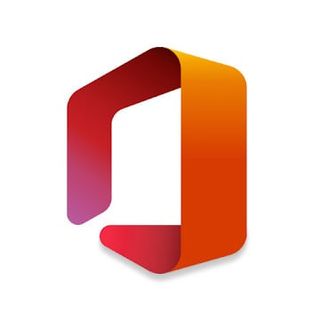
Office 365 for Business and G Suite have a lot in common, so picking between them comes down to your specific business.
Familiar and compatible
Office 365 Business plans build off Microsoft's robust set of desktop applications. These apps have been industry standards for years and have built up a massive feature set over time. Office 365 Business also supports cloud storage, business emails, web versions of the Office suite, and Microsoft Teams if you pick the right plan.
- Has options for powerful desktop apps
- Includes Office apps that have been standard for decades
- Has options that include Microsoft Teams
- Maximum cloud storage is 1TB

Light and web-friendly
G Suite is browser-friendly and makes online collaboration within documents easy. It has a wide range of web apps for productivity that can also be used offline. G Suite also has options for unlimited cloud storage, business emails, and Google Hangouts for communication.
- Easy to use online apps
- Excellent for online collaboration on documents
- Has options for unlimited Google Drive Storage
- Cheapest option only has 30GB of Google Drive storage
Note: During the coronavirus (COVID-10) pandemic, Google and Microsoft have made some premium features available for free. Additionally, some services might be throttled or affected during the outbreak due to high usage and demand. The comparisons in this article are based on the standard pricing and feature sets of Office 365 Business plans and G Suite plans.
Microsoft's Office 365 Business plans and Google's G Suite plans include a wide range of productivity apps, online communication tools, and cloud storage. These are powerful tools for working from home. Both offer applications for word processing, presentations, spreadsheets, and many other similar feature sets. As Office 365 Business and G Suite have evolved over the years, choosing between them has become even more difficult. Picking the best one for your business mostly depends on your budget, how much cloud storage you need, and the ecosystem you prefer.
Head-to-head features
Breaking down office 365 for business.

Microsoft's Office 365 Business plans center around Microsoft's Office applications. The Business and Business Premium plans get you access to the desktop versions of Outlook, Word, Excel, PowerPoint, Publisher, and Access. All of the Office 365 Business plans get you access to the web and mobile versions of the Office apps. Microsoft Office applications have been the standard for many companies for decades. They've built up an impressive and comprehensive set of features over the years and are still the first productivity apps many people use.
Many people will choose an Office 365 Business plan over G Suite solely because of the Office desktop apps. They're robust, feature-rich, and many businesses work in Office, so you won't have to deal with converting files to an Office format. Microsoft first dominated the productivity space with the Office suite of apps and has tried to maintain its spot on the productivity thrown by continuing to enhance them.
Many people will choose an Office 365 Business plan over G Suite solely because of the Office desktop apps.
Perhaps in response to stiff competition from Google's G Suite, Microsoft brought its Office apps to the web. These web apps are available as part of every Office 365 Business plan and make it easy to access your documents and files from anywhere. In addition to web apps that can be used on computers, Microsoft has made its apps available on mobile devices. You can get the core Office apps on iOS and Android, including optimized versions for tablets.
Every Office 365 Business plan comes with 1TB of OneDrive storage. This makes it easy to save a file on one device and continue working on it on another. OneDrive works across Windows, iOS, and Android so that you can grab your files anywhere. OneDrive also has a handy Files On-Demand feature that lets you view all of your OneDrive files on your Windows 10 PC but lets you choose which files are stored on your device.
Get the Windows Central Newsletter
All the latest news, reviews, and guides for Windows and Xbox diehards.
If you grab the Office 365 Business or Office 365 Business Essentials plan, you'll get access to Microsoft Teams. Teams is Microsoft's competitor to Slack and allows you to instantly collaborate with colleagues through chat, voice calls, or video calls. Teams has been out for three years now and is still gaining features from Microsoft as it matures.
Breaking down G Suite

Google's G Suite has been a force on the web for some time. Google made Docs, Sheets, Slides, Forms, and other web apps years ago that compete with Microsoft's Office apps. One of the key differences is that Google successfully brought these to the web early on. As a result, Google has years of experience, optimizing its apps for the web. One of the best things about G Suite is how well it handles instant collaboration of documents online. You can easily work together on a document or file with a colleague from a wide range of devices. Microsoft's Office apps allow for collaboration on documents, but many rank G Suite above Office for working on a document in real-time.
While G Suite is based around web apps, you can use the apps offline. Google's web apps used to lag behind Microsoft's desktop Office apps in terms of functionality, but Google has done an excellent job closing the gap. For example, in addition to essential spreadsheet functions, Sheets can handle macros, pivot tables, and charts. There are some ways that G Suite's apps lag behind the desktop Office apps, such as Sheets only supporting up to 5 million cells and Excel handling up to 17 million, but differences like that only affect a subset of users.
One of the best things about G Suite is how well it handles instant collaboration of documents online.
In addition to collaborating on documents in real-time through G Suite, you can instantly communicate with Hangouts Chat and Hangouts Meet. Hangouts Chat allows you to communicate through direct or group messages. You can also organize your work within dedicated virtual rooms. Hangouts Meet will feel familiar to anyone who has used Google Hangouts for personal use. It's a video calling service that's available on a variety of devices. It makes it easy to host virtual meetings and communicate face-to-face through the web.
G Suite integrates with Google Drive, and the Business and Enterprise plans offer unlimited storage if your organization has five or more people. Office's 1TB sounds like a lot of storage if you're coming from a personal use perspective, but you can easily fill 1TB with files from a business. Video files, large sets of photos, and other files can take up a lot of space. Getting unlimited Google Drive storage is a big bonus of G Suite.
Which should you use?
Picking between these two services is incredibly difficult because they're similar in so many ways. It feels like Google and Microsoft took different routes to the same destination. Microsoft started with robust desktop apps and then added web apps, online tools, and made things more mobile-friendly. Google started on the web but added power features that people expected on the desktop Office apps. It feels like Microsoft and Google each regularly review how their services lag behind the competition and then close the gap. As a result, you end up with two remarkably similar offerings.
The main reason people will lean towards one of these services is the ecosystem that other people they work with are on. If you need to collaborate on Office documents or Google documents, you should stick to the service that your workflow already requires. If you work with clients or other departments that are on one of the ecosystems already, it will be easier to use the same service. If you're picking a suite for your entire company, you'll probably be happy with either choice.
To prevent a complete toss-up, we'll focus on cloud storage, which is one of the more significant differences between these services. If you want unlimited cloud storage, you should go with G Suite. If you work with large video files or extensive collections of images and need to be able to share them across devices, you can quickly fill 1TB of storage, making G Suite's unlimited offering the better choice. On the other end of the cloud storage spectrum, if you're on a budget but need a lot of storage, Office 365 Business is the better option. Microsoft's cheapest Office 365 Business plan comes with 1TB of storage, which is significantly more than the 30GB from G Suite's cheapest offering.
Desktop and web, together
Office 365 brings powerful desktop apps, web apps, cloud storage, and team communication into a single subscription.
Web and cloud-friendly
G Suite makes it easy to access its web apps and cloud content through your browser and other devices.
Sean Endicott brings nearly a decade of experience covering Microsoft and Windows news to Windows Central. He joined our team in 2017 as an app reviewer and now heads up our day-to-day news coverage. If you have a news tip or an app to review, hit him up at [email protected] .
- 2 You can now change the time of day and season in Hogwarts Legacy — but there's a catch
- 3 Destiny 2's Final Shape Salvation's Edge raid: Release time, Power requirements, and how to start
- 4 Microsoft's Photos app in Windows 11 finally gets much-needed love but at the exorbitant cost of slower load times
- 5 I think Snapdragon X Elite gaming performance is going to blow your mind, but there is still one big issue to overcome

IMAGES
VIDEO
COMMENTS
Use on PCs, Macs, phones, and tablets. 1 TB of cloud storage. Apps with premium features and offline access. Identity, Footnote. 1 data, and device security. Ad-free secure email. Buy Now Or buy at $6.99/month. Subscription automatically renews.
For most small businesses is the Microsoft 365 Business Standard plan the best choice. With a price of $12.50 per user per month, you get the full Office 365 suite, with the desktop apps, Exchange Online, SharePoint, OneDrive, etc. Everything you need to get your business started in the cloud. If you also want to fully manage your devices ...
Microsoft 365 for business is a subscription service that lets you run your organization in the cloud while Microsoft takes care of the IT for you. It connects employees to the people, information, and content they need to do their best work, from any device. The latest desktop versions of Microsoft 365 apps: Outlook, Word, Excel, PowerPoint ...
In the table below you will find all the details of the Microsoft 365 business plans compared. You can find the prices for your country here at Microsoft.com. Keep in mind that all Business plans are limited to 300 users. Note. Microsoft added new plans without Teams wich are only available in the European Union.
Microsoft 365 personal plans. What's different. Get a branded email address for your business or bring an existing one. Create branded templates in Word, Excel, and PowerPoint. Let customers schedule appointments with you online and share calendars across individuals. Use a central location for all work files.
Office 2021 is sold as a one-time purchase, which means you pay a single, up-front cost to get Microsoft 365 apps for one computer. One-time purchases are available for both PCs and Macs. However, there are no upgrade options, which means if you plan to upgrade to the next major release, you'll have to buy it at full price.
This is one of the differences that are easily overlooked, but very important for larger corporations. With Office 365 Business and Business Essentials you can't use Office Add-ins, ActiveX or Browser helper objects. Now you might think, I don't really need add-ins. But no add-ins also means no connection with your CRM or ERP application.
Find the right Microsoft 365 Family or Personal plan for all your devices. Includes AI-powered Office apps, 1 TB of cloud storage, and premium mobile features.
See trial terms 2. Learn more. Everything in Office 365 E1, plus: Install Microsoft 365 Apps on up to five PCs or Macs, five tablets, and five mobile devices per user. Message encryption. Rights management. Data loss prevention for email and files. Copilot for Microsoft 365 available as an add-on 3.
There's no denying that Microsoft 365 Family offers great value. Pay $99.99 per year in the US or £79.99 in the UK and you get Word, Excel, PowerPoint, OneNote, Outlook and OneDrive. Users can ...
1 Includes Exchange Online Plan 1. 2 Includes Exchange Online Kiosk. 3 Microsoft 365 F1 doesn't include rights to an Exchange mailbox. To enable a full Teams experience, Microsoft 365 F1 licenses may come with the Exchange Online K1 service plan enabled. Although the Exchange Online K1 service plan will provision a mailbox for the user, Microsoft 365 F1 users aren't entitled to use the mailbox.
When comparing Microsoft 365 licenses, price is one of the first questions decision-makers consider. Below are the annual* prices for Microsoft 365 Business, Microsoft 365 Enterprise, and Office 365 licenses: Microsoft Licensing Plan. Price Per User Per Month. Microsoft 365 E5 (no Teams) $54.80.
Here is a comparison of pricing and available apps and collaboration services between all four Microsoft 365 plans for business: Microsoft 365 Business Basic. Microsoft 365 Apps for Business. Microsoft 365 Business Standard. Microsoft 365 Business Premium. Price (Annual subscription) $ 5.00 per user/month.
Office 365 and Microsoft 365 Commercial Plan Comparison 1. Business plans include business hours support for all non-critical issues, 24/7 phone support from Microsoft, and a 300 seat cap limit for all Business plans 3. Includes Word, Excel, PowerPoint, Outlook, OneNote, Publisher (PC only), and Access (PC only) 2.
Web and mobile versions of Word, Excel, PowerPoint, and Outlook. Chat, call, and video conference with Microsoft Teams. 1 TB of cloud storage per employee. 10+ additional apps for your business needs (Microsoft Bookings, Planner, Forms, and others) Automatic spam and malware filtering. Anytime phone and web support.
Office 365 Exchange Online Plan 1 Plan 2 Microsoft 365 Business Basic Business Standard Business Premium Microsoft 365 Business Apps Description A budget-friendly Exchange solution, with online, mobile and Outlook access to Exchange email, contacts and calendars. Full-featured Exchange with 50GB mailboxes, discovery capabilities and email
With a Microsoft 365 for business subscription: Get a branded email address for your business or bring an existing one. Create branded templates in Word, Excel, and PowerPoint. Let customers schedule appointments with you online and share calendars across employees. Use a central location for all work files to save time and collaborate quickly ...
For personal use. Office Home & Student 2021: $150, one-time purchase for use on one computer; includes Word, Excel, PowerPoint, and OneNote. Microsoft 365 Personal: $70 a year or $7 a month (1 ...
To purchase, customers must have a qualifying Microsoft 365 plan for enterprise or business. [3] Microsoft 365 F3 includes Microsoft 365 apps for web and mobile only. Microsoft 365 mobile is limited to devices with integrated screens 10.9" diagonally or less. [4] Mobile apps only. [5] Includes Word, Excel, PowerPoint, Outlook, and OneNote.
Select the subscription that you want to manage. On the subscription details page, in the Other subscription options section, select Change to a different subscription option. On the Compare products and select another option page, select a different plan to compare with your current plan. When you find the one that you want to buy, select Next.
The Microsoft 365 Enterprise and Office 365 Enterprise plans (including standalone plans such as Exchange Online) and Microsoft 365 Apps for enterprise are available for annual commitment payment. Annual commitment payment: Sign up for a one-year subscription and choose to pay monthly or for the entire year at the time you sign up.
All of the Office 365 Business plans get you access to the web and mobile versions of the Office apps. Microsoft Office applications have been the standard for many companies for decades.